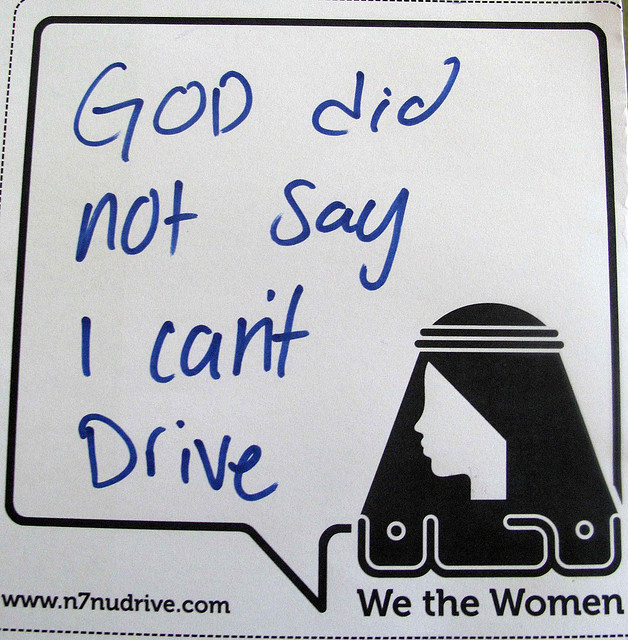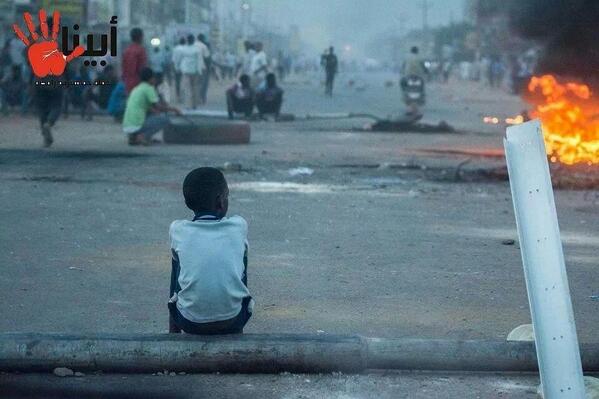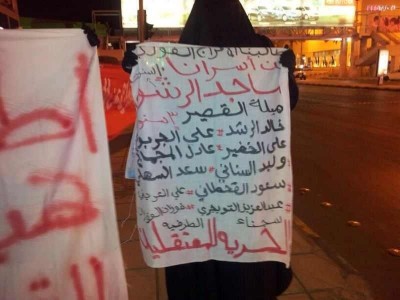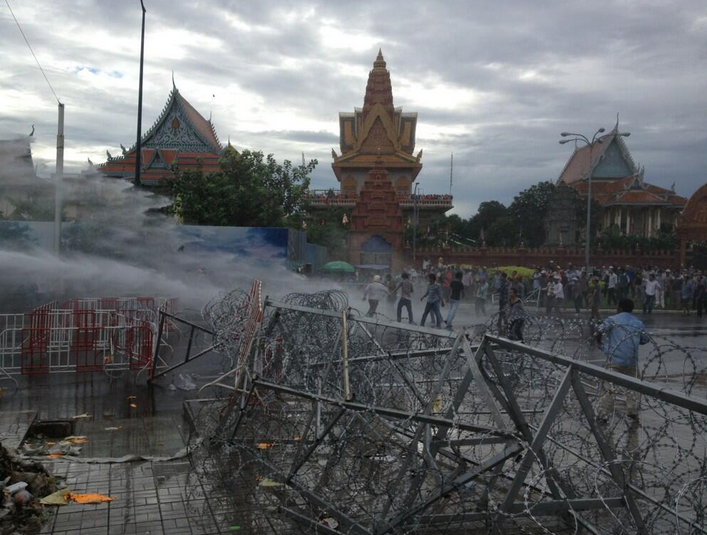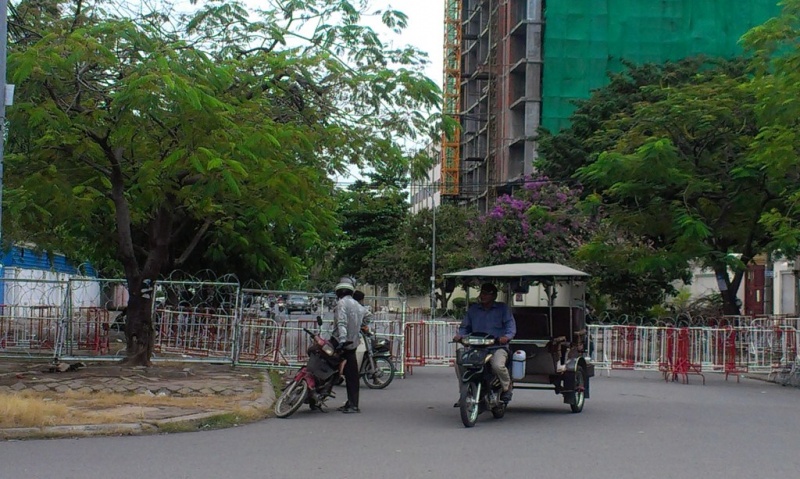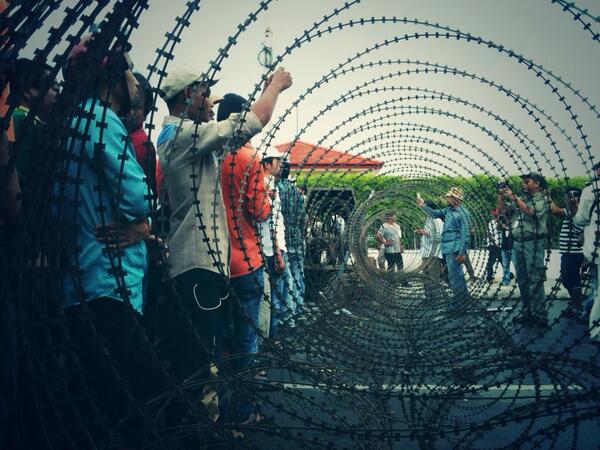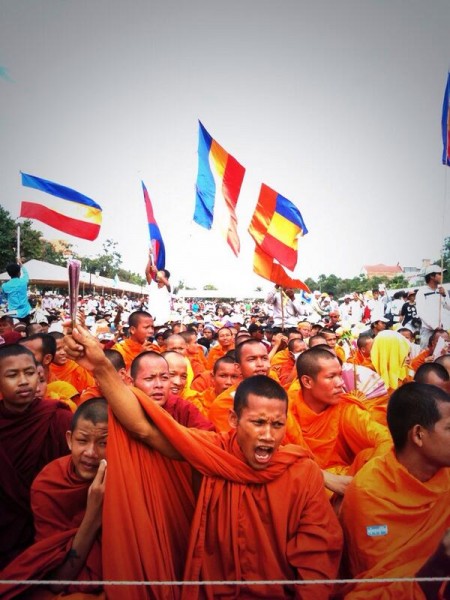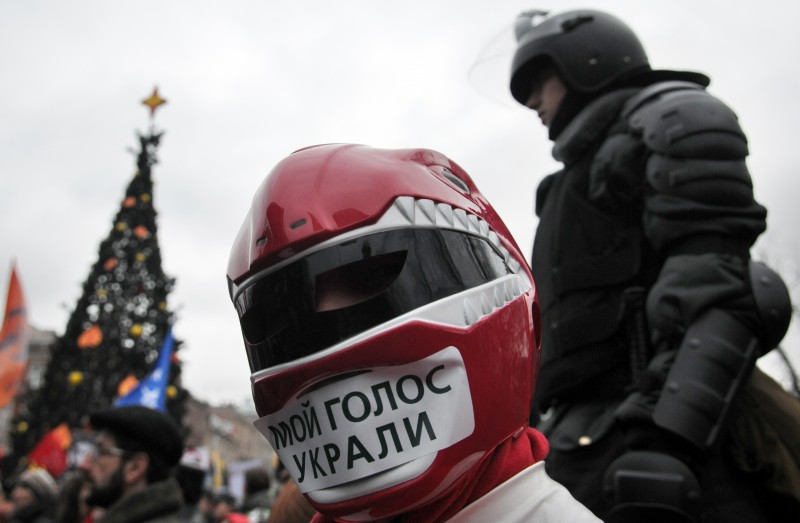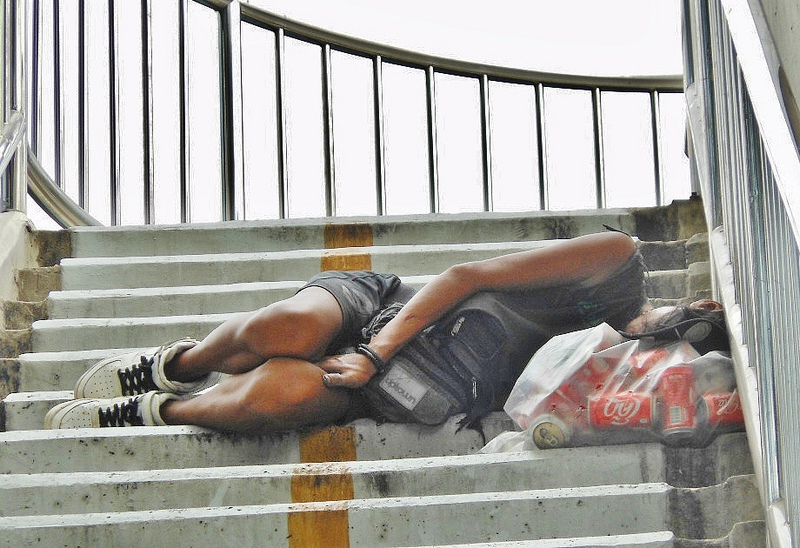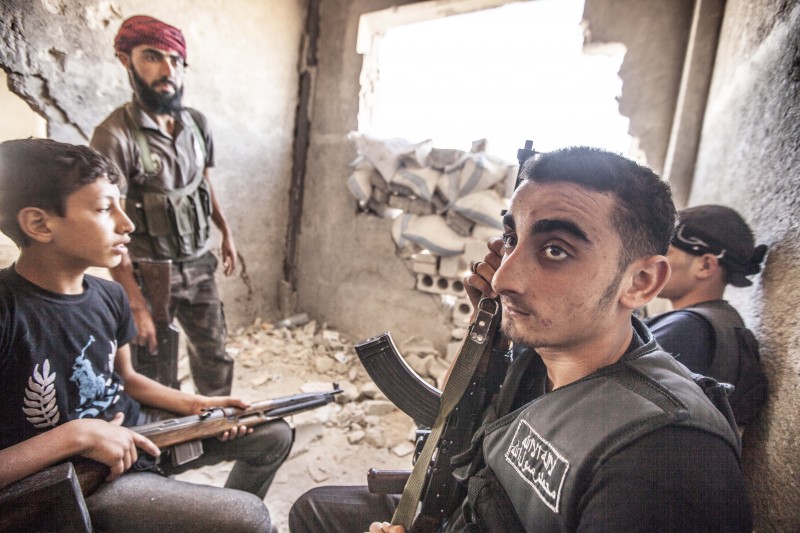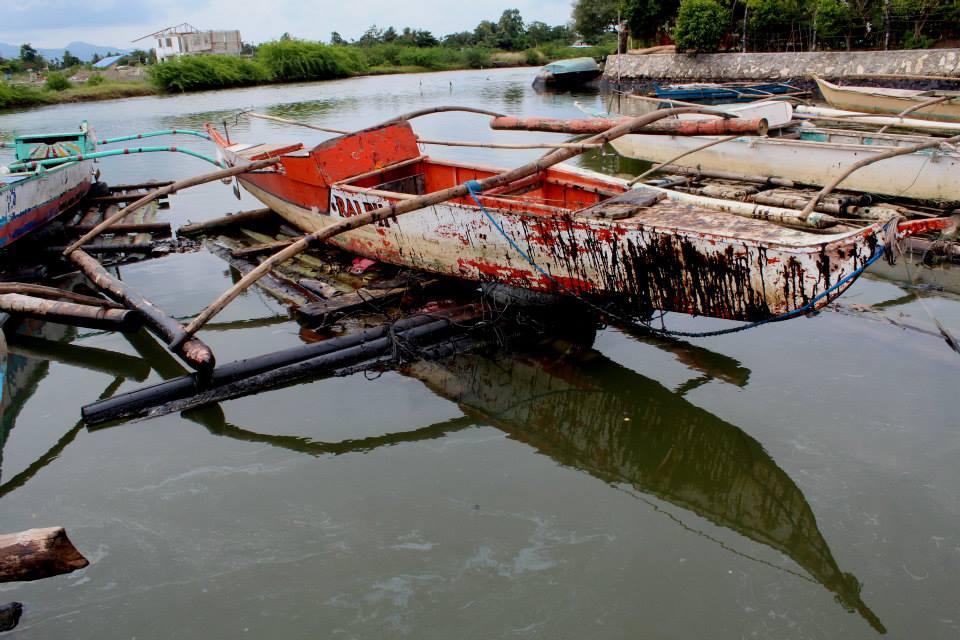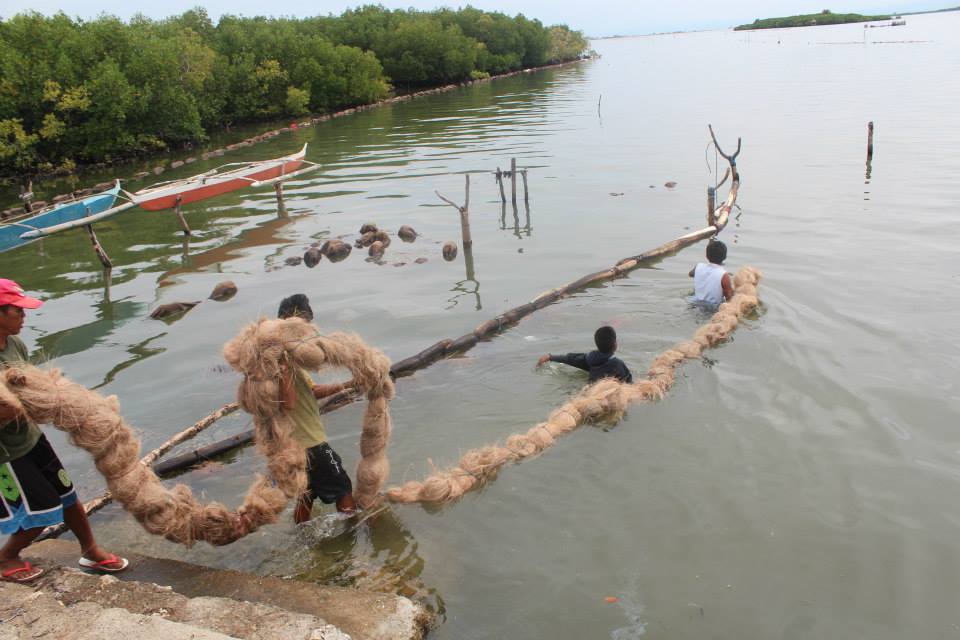Saudi Clergyman Delivers Ground-breaking Science on Why Women Shouldn't Drive
In Saudi Arabia, women are banned from driving. While more than 11,000 women challenge the ban through a petition, a man of wisdom has finally come up with a scientific explanation on why it is actually better for women not drive. In an interview with online Saudi newspaper Sabq, Sheikh Saleh al-Lehaydan, a judicial and psychological consultant to the Gulf Psychological Association, revealed novel reproductive science facts [ar]:
وتابع: “إلى جانب أن المرأة إذا قادت السيارة لغير الضرورة – كما تقدم – قد يؤثر ذلك عكسياً على الناحية الفسيولوجية؛ فإن علم الطب الوظيفي الفسيولوجي قد درس هذه الناحية بأنه يؤثر تلقائياً على المبايض، ويؤثر على دفع الحوض إلى أعلى؛ لذلك نجد غالب اللاتي يقدن السيارات بشكل مستمر يأتي أطفالهن مصابين بنوع من الخلل الإكلينيكي المتفاوت لدرجات عدة”.
He added “In addition, if the woman drove without a necessity this may affect her physiology negatively; in the science of functional physiology this issue has been studied and it affects the ovaries spontaneously, affects thrusting the pelvis upwards, thus we find that most of those who drive cars continuously deliver children with varying degrees of clinical dysfunction.”
Sheikh Lehaydan's announcement is incredibly timely: Saudi women activists are campaigning for 26 October to be a day when women go out driving. His warning urging women to “wait and consider the negatives” of such a damageable activity adds to concerns voiced by other conscious Saudi citizens [ar]:
من يطالبون بمظاهرة #قيادة_المرأة قوم رضعوا لَبن الغرب في صغرهم ونبتت شحوم ظهورهم منه في كبرهم فاتبعوا سننهم لأمركة مجتمعنا #قيادة_26اكتوبر
— محمد الشنار (@mshanarm) September 26, 2013
Those who are calling for a women driving protest Oct 26th are a tribe who have been breastfed by the West and they grew big and fat drinking that milk. Now they are following the West and trying to Americanize our society.
‘Foreign hands,’ a favourite tune in the Middle East when it boils down to reconsidering institutionalized human rights violations, are not the only ones guilty of fomenting dangerous opposition to long-lived prohibition:
سبحان من جمع بنو علمان والرافضة في خندق واحد يدعون الى قيادة المرأة للسيارة وهذا دليل على أن هذا الامر مخطط له وتدعمه دول #قيادة_26اكتوبر
— ابو زيد السعيدي (@Salem1213Salem) September 22, 2013
God be great, the secularists and the Shia are in one trench to call for women driving. This proves that the issue is planned and supported by nations.
Eman al-Nafjan tweets a picture of the apocalypse to come:
Some Saudi misogynist made this poster on how women driving will lead to communism, drugs, liberalism… pic.twitter.com/xjBe44oObr
— Eman Al Nafjan (@Saudiwoman) September 27, 2013
(The slogan reads: “They want her to drive so that she’ll be driven.”)
Sheikh al-Lehaydan's ground-breaking scientific discovery could not go unnoticed. A Twitter hashtag, #قيادة_المرأة_تؤثر_على_المبايض_والحوض, that translates into “women driving affects ovaries and pelvis” kicked off and went viral as many reacted to al-Lehaydan's scientific knowledge:
What a mentality we have :/ People went to space and you still ban women from driving Idiots #قيادة_المرأة_تؤثر_على_المبايض_والحوض
— Mido Katouah (@Mido_katouah) September 28, 2013
When idiocy marries dogma in the chapel of medieval traditions, this is their prodigal child. #قيادة_المرأة_تؤثر_على_المبايض_والحوض
— Shamael Al-Sharikh (@Shamael3) September 28, 2013
at times like this i understand why people commit suicide #قيادة_المرأة_تؤثر_على_المبايض_والحوض
— #ياثورة _ما_تمت (@Ayasettawi) September 28, 2013
Please respect ourminds If u don't want us to drive at least come up with good reasonable excuse #قيادة_المرأة_تؤثر_على_المبايض_والحوض
— 7oor (@Owiwi_Hoor) September 27, 2013
Such declarations do not spark sharp criticism and acute sarcasm solely from women:
After long clinical/psychological trials, scholars discovered why women can't parallel park..ovaries. #قيادة_المرأة_تؤثر_على_المبايض_والحوض
— Mohammed AlMuharraqi (@MohdMuharraqi) September 28, 2013
@Saudiwoman أي كلام هذا؟ سألت طبيبة عن ما قاله اللحيدان الرد كان: “أي جهل هذا؟ كلام لا علاقة له بالطب لا من قريب ولا من بعيد”
— Majid Al-Ayed (@BinAyed70) September 28, 2013
What is this? I talked to my doctor, and she said “What kind of ignorance is this? These words have nothing to do with Medicine, from wherever you look at it!”
Saudi Cleric Says Crazy Shit #NotNews
— Ahmed Al Omran (@ahmed) September 27, 2013
Renowned (male) scientist and sound religious critic, Richard Dawkins, observed:
Why shouldn't Saudi women drive? Driving damages their ovaries and pelvis. http://t.co/r1BnHWrLDC Oh I SEE, it's not religion but SCIENCE.
— Richard Dawkins (@RichardDawkins) September 28, 2013
To whom tweep @Seeektrooof commented:
@RichardDawkins This is how they figure it out. pic.twitter.com/rWrxPQ2FkI
— Truth Seeker (@Seeektrooof) September 28, 2013
Sarcasm aside, challenging the driving ban in Saudi Arabia is a long-lived battle. Indeed, the first protest opposing the ban happened back in November 1990 (En) when 47 women drove through the country's capital city of Riyadh. They were not only arrested, but many were further punished by being banned from travel and suspended from their work. May 2011, marked a tipping point of the protest movement against driving prohibition for women in the Kingdom after Saudi women's rights activist Manal al-Sharif was arrested after uploading a video to YouTube that showed her driving. She was jailed for more than a week, becoming a hero for many women both in Saudi Arabia and across the Middle East. Back in June 2011, numerous Saudi women across the Kingdom followed the example Manal al-Sharif has set and participated in the “Women2Drive” campaign by defying the ban and driving throughout the streets.
As a matter of fact, banning women from driving is not inscribed anywhere in the Kingdom's official legislation. Additionally, the head of Saudi Arabia’s religious police also said that the “Islamic sharia does not have a text forbidding women driving,” stressing that, since appointed as head of the Committee for the Promotion of Virtue and the Prevention of Vice, religious police have not pursued or stopped a woman driving. The prohibition is thus entirely based on the country's conservative customs.
Mobilization to revert oppressive prohibition has been growing ever since and bold acts of civil disobedience have multiplied. Along with bold positions in Saudi Arabia's mainstream media, the 26 October campaign has seen an incredible support from many of the country's prominent public figures. Remarkable Madeha Al-Ajroush who drove both in 1990 and in June 2011, says:
Yes, i will drive again on October 26 #قيادة_26اكتوبر
— madeha al ajroush (@madehaAlajrous) September 21, 2013
Using the Twitter hashtag #أنا_رجل_مؤيد (“I´m a male supporter”), men have also started to publicly show their support:
#أنا_رجل_مؤيد #قيادة_26اكتوبر #غرد_بصورة pic.twitter.com/K3QcZfItuS
— منال مسعود الشريف (@manal_alsharif) September 27, 2013
#أنا_رجل_مؤيد #قيادة_26اكتوبر #غرد_بصورة pic.twitter.com/PWGOipPV2m
— منال مسعود الشريف (@manal_alsharif) September 27, 2013
As Manal al-Sharif put it when rewarded for “creative dissent” at the Oslo Freedom Forum: “The rain begins with a single drop.” Seems like the sky above Saudi Arabia is covered with clouds.
via Global Voices » Feature http://globalvoicesonline.org/2013/09/29/saudi-clergyman-delivers-ground-breaking-science-on-why-women-shouldnt-drive/
Labels: Global Voices » Feature, IFTTT
